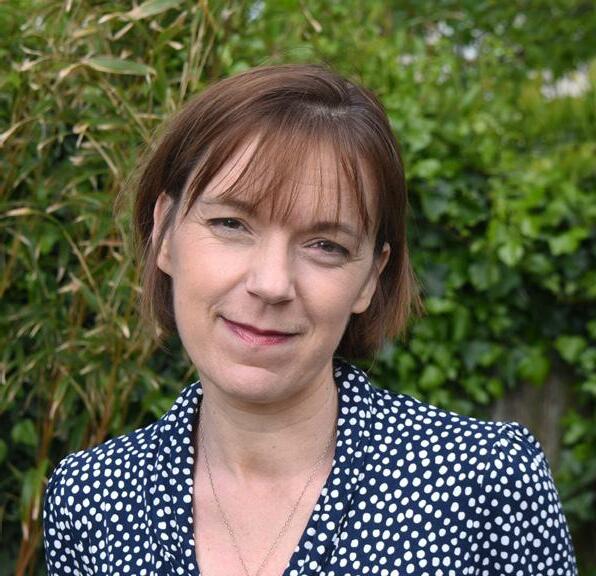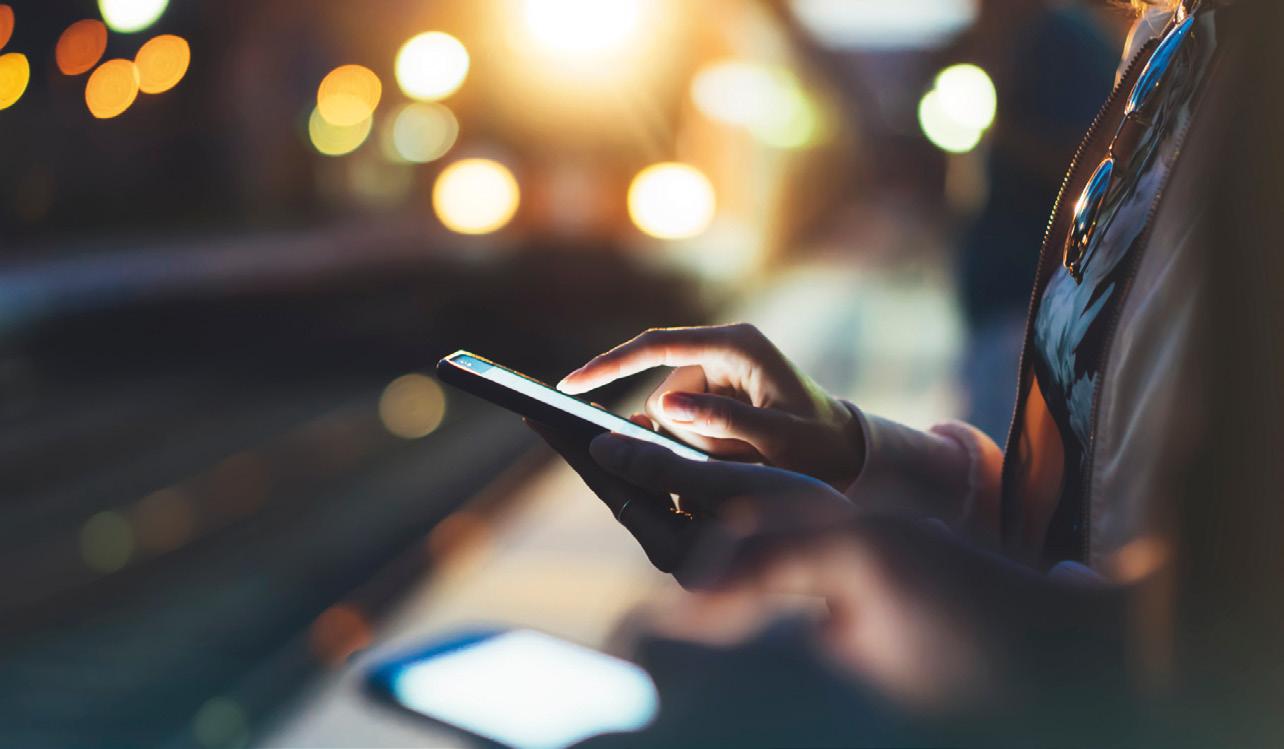
10 minute read
Why All Young People Need Good Drug Education
Fiona Spargo-Mabbs OBE
Why all young people need good drug education
Advertisement
When my younger son Dan was sixteen he asked if he could go to a party that evening with friends. He never came back. The policeman who knocked at the door in the early hours said he’d been found unconscious outside an illegal rave, miles away from our South London home. It was thought he’d taken ecstasy. We spent the next two days in intensive care, watching our bright, beautiful, bighearted boy die from multiple organ failure. The little bag of MDMA he had taken was, it turned out, twelve times stronger than had caused fatality in the past. The four friends who had taken what had appeared to be identical amounts were fine - one of the risks inherent in an illegal supply source, but a risk you may not fully appreciate as one of a bunch of teenagers out on a Friday night, with – it transpired - no drug education between them to help them out.
Dan’s ‘drug life’ was something about which we as his parents knew nothing until after he died, but there wasn’t a lot to know. His was a very short journey, starting with a puff of someone’s weed at the after-prom party the summer before, a taste of a friend’s MDMA at a gig in that autumn of year 12, some of his own that the same friend got for another gig a month or so later, and then that very unlucky last time, that worst case scenario ending. It’s an ending that is, thankfully, not a common experience, but one which is totally, utterly avoidable
– along with all the other shades of harm and damage alcohol and other drugs can do. This of course includes so much more than the possible impact on physical and mental health, but all the collateral damage the criminality surrounding drugs wreaks on young lives, through violence, violation and exploitation. And while there remains a demand, the routes and methods of supply will continue to thrive, and to drive so much of this damage ever onward.
Demand for drugs will never disappear altogether, and the factors at play are complex, but it’s certainly showing no signs of significant waning any time soon. Government data published this autumn shows that, by the age of fifteen, just over half of young people will have been offered illegal drugs, and almost one in three will have taken them, on at least one occasion (NHS Digital, 2022). This figure has hovered at roughly the same level for the last couple of decades. All we now know about the critical stage of neurological development the adolescent brain undergoes, from the age of around ten into the mid-twenties, highlights the fact that it’s just at the stage of life when you’re most likely to find yourself faced with decisions about drugs that your brain is least likely to help you manage those decisions safely.
Add to this mix all the multiple layers of essential social, hormonal and physical transformations taking place throughout adolescence, as a once-dependent child grows into an independent adult, and the results leave young people least able to manage impulse and risk, and to think things through sensibly, and most sensitive to social inclusion and exclusion. Without a sound understanding of the risks involved, and the skills and strategies to help them manage risk - especially in a social context - young people are incredibly disadvantaged, and for some that doesn’t end well.
When Dan died I didn’t know any of this. Of course, I knew drugs were out there. We’d had ‘drug conversations’ at home, and we’d talked specifically about ecstasy just six months before he died, when he got back from Reading Festival full of the first time he’d seen people under the influence, and what that looked like. Dan was curious, and a chatterbox, so conversations weren’t hard to come by, but I didn’t know enough, and neither did he, to keep him safe when decisions came his way. So when he died I set out to learn what I wished I’d known, and to make sure other young people, and their parents and carers, and their teachers, were better armed than we had been, and started a drug education charity in Dan’s name, the Daniel Spargo-Mabbs Foundation. I was too late to help Dan, but I was determined to do all I could to protect other young people.
It's been nine years now since Dan died and we started our charity, but the need for effective, evidence-based drug education for all our young people has never been greater. It's hard for them to avoid illegal drugs these days, whether it’s ‘In Real Life‘ or virtually, via a screen of some sort, not least social media, providing an ideal space to reach thousands upon thousands of young people, for buying and selling, as well as grooming and exploiting. And, in an era when young people’s mental health is under enormous pressures, there’s also the role drugs can play as a coping strategy, in that complex, chicken-andegg relationship between mental ill health and substance use that is eons old. The government data referred to above also revealed that one in five
Dan Spargo-Mabbs

11-15-year-olds who had taken drugs had done so on the first occasion to forget their problems, the highest proportion on record (NHS Digital, 2022). The Mix recently published data on 16-25-yearolds that showed a similar concerning trend, with 21% reporting using drugs to escape from their problems in 2022, compared with just 12% the previous year (The Mix, 2022).
Reducing demand for illicit drugs is a key priority of the 2021 government drug strategy (and for parents and schools, as well as anyone working with, or caring for or about young people) and reducing – or even better, preventing - the harm they can do to young people is more important still. Drug education is vital if this is to be achieved in any way, shape or form. It’s statutory now in all schools in England, but it can still be done poorly and partially, just to meet the curriculum. It’s essential it is done well, and thankfully, there’s an international evidence base that helps us to know what this looks like, because doing it badly can not only fail to help where it’s needed, but can cause unintended, but very real harm. Failing to do drug education, and to do it well, leaves young people vulnerable, whoever they are, wherever they live, whatever family or community they’re from, across the full spectrum of harms drugs can cause.
Drug education won’t fix all this, or address all that lies behind it, but without it we leave our young people seriously disadvantaged, and with a heavy potential price for some to pay.
Fiona Spargo-Mabbs OBE
Fiona Spargo-Mabbs OBE is Director and Founder of drug education charity the Daniel Spargo-Mabbs Foundation, and author of ‘I Wish I’d
Known - Young People, Drugs and Decisions: A Guide for Parents and
Carers’ (Sheldon Press, 2021) and ‘Talking the Tough Stuff with Teens’ (Sheldon Press, 2022)

Fiona Spargo-Mabbs OBE

www.dsmfoundation.org.uk
Hear from Mark Balaam, the Founder of imabi, and how his vision for social change is already making a difference. “Railway Guardian is excellent. Being able to report any number of different situations so easily in an app means it’s more likely that I will.” Rail User

After more than 20 successful years working in the telecommunications and digital solutions industries I decided it was time to give something back. As a father of two teenage daughters, Imogen and Abigail, I could see first-hand the challenges they faced with safely navigating their way through their childhoods with so much exposure to harmful online content and social pressure. So, in 2020 I created imabi, a company that is committed to using technology responsibly to make society safer for all, and in particular young people.
imabi’s vision is to build a kinder society for everyone, everywhere. A world where people and organisations connect for a better understanding, creating safer communities and challenging harmful behaviour. And that by working together we educate and empower others to challenge and help shift social attitudes. Giving people, especially young people and other vulnerable groups, the confidence to speak up and get help is at the heart of imabi’s mission to make sure everyone has that chance. It is only by knowing what is happening that action can be taken. And because of that, imabi is passionate about making sure everyone has the opportunity through access to their technology. imabi’s technology platform supports a range of mobile applications and a content management system. These are available to users in a
Ever wonder how technology can make a real social impact?
variety of apps provided to them by their organisation. All of the apps give users access to trusted information, guidance, reporting and support tools – helping organisations start to tackle the root cause of issues by knowing what is happening. imabi’s mobile apps are in use across businesses (Pro app), education settings (Inspire app) and communities (Railway Guardian – British Transport Police). imabi continues to develop products for wider public use and add new features, such as the soon to be launched geo-location service.
We know from experience and research that reacting to something when it has happened means it is too late. We have focused our energy into creating products that empower our users to make the right decisions for them, and reduce the risk of something harmful happening. Access to hundreds of guides ranging from street safety to home and online security, support groups and charities, important information and real time messaging about events means
I wouldn’t have spoken up about what happened to me without having access to the app. It meant I could report what was happening without having to do it face to face. I would have found that too difficult.” Student – Inspire
users can be better prepared when making decisions. And, of course, should something happen they can report it. Planning a journey and staying connected with friends and families means users know someone is watching out for them; with the ability to discreetly send alerts if help is needed. imabi has everything all in one place. Supporting those who support their users is an important part of what imabi is about. We provide data analytics to organisations who adopt imabi products, giving them important anonymised trend data so they can better understand what is happening in their community. Access to the imabi content management system means they stay in control of what their users see in their app.
imabi has created products that work in any environment, and together they produce an ecosystem that starts to better understand the issues affecting people in their communities, and has established Social Value Programmes. By signing up to the imabi Partnership Programme groups of businesses, schools and local authorities can work together supplying the apps to their users and forming a local action partnership that tackles the root causes of harmful attitudes and behaviours such as violence against women and girls, knife violence and county lines. imabi also offers businesses the opportunity to make a real and measurable social impact by sponsoring schools to have the imabi Inspire student app. Our imabi School Sponsorship Programme is open to all UK businesses and schools.
Our experienced team of professionals with backgrounds in policing, education, intelligence, safeguarding, telecommunications and digital solutions means we know some of the challenges people continue to face, and that by working together using responsible technology and innovation we can do so much more to make a real impact and drive social change.
“I worry when I’m out by myself and always tell friends the route I’m taking and the time to expect me home. Having geo-location is such a brilliant feature.”
Employee – Large Corporation
imabi is committed to challenging the status quo because everyone has the right to feel safe, be safe and have a voice.








